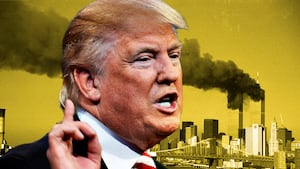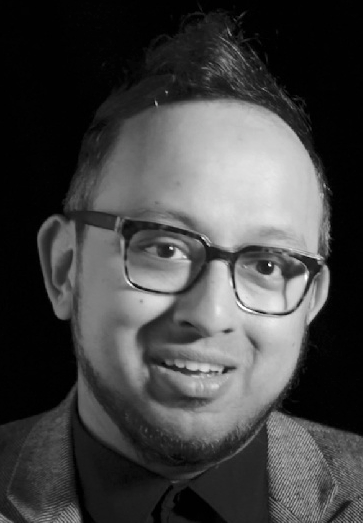I was a teenager attending Stuyvesant High School on the morning of September 11th, 2001. A bright-eyed senior, I was gazing out the window, staring at the north face of the North Tower, imagining how to get through calculus without paying full attention. My daydreaming was interrupted by a sudden flash of movement—followed by a large explosion. My gaze widened. I yelled out. Alerted by my reaction, my classmates rushed to the window. I had just witnessed the first plane enter the World Trade Center.
Every moment after that was consumed by chaos, fear, and the unknown of what the day would bring. We watched in horror as the second plane struck, and we were then forced to evacuate. We ran as fast as we could as the towers fell, dusting on to our backs. The images the country and the entire world saw on television we experienced first-hand, along with everyone in and around the towers that day. Our safety nets were pulled from under us as we desperately huddled together. We ran up the West Side Highway, walked miles across town and over the Queensboro Bridge. We were blindly escaping a warzone, during a time with no cell phones or social media to tell us what was happening. It was all hearsay—rumors of attacks, bombs exploding, impending danger. We wanted nothing more than to be home and eventually made it…to crying, grateful parents.
As a Muslim-American, I was keen on keeping safe after the attacks. I am a proud New Yorker, and like to think I have street smarts. I was constantly watching my back on the subways and keeping an eye on my parents’ cars parked outside the house, now sporting prominent American flag stickers. My fear did not dissipate, as I worried about not only another attack on my city, but the potential of a more personal attack on my family. My mother wears hijab, my father served as the president of a prominent Islamic center and mosque in Queens. They were obviously and unapologetically Muslim, as was I. But we were unapologetically American, having the audacity of equality. I was strongly anti-war. In the months following the attacks, I marched the streets of Manhattan, yelling and chanting that my loss and my pain not be translated into a cycle of bombs and collateral damage. I saw the support in those streets from people of all races, faiths, and political ideologies, yelling desperately to be heard. That’s why I’ve never left New York: the diversity. It was always home and will continue to be.
That day shaped much of the person I am today. I know this is a sentiment shared by many others around this city, country, and world, and I understand where their lives draw influence from that day. Parts of my values, self-identity, and passions stem from the paradigm shift, which permeated my experiences from that day forward. I cannot speak for anyone other than myself, but I do feel that what I have to say and what I feel is important, because every story is important and stories are what perpetuate the true verbal account of such an altering event. That day is well-documented in somberly-moving video footage and earth-shattering photographs. However, it is the stories that humanize an event referred to so often in passing, and it is the political and socioeconomic results that unfortunately push themselves to the forefront of our references. Our accounts of the depression, left in the bedrock of downtown Manhattan long after debris was removed, are what allow for true healing and growth.
The gaping hole in lower Manhattan has surely and fittingly filled and is an echoing reminder of the emotions that so many of us feel. Missing the towers themselves represents missing the peace and security we had at 8:00 a.m. on that Tuesday morning. More importantly, it represents the people we miss so dearly, whose lives would be unimaginable 18 years after the day they passed. It is stirringly painful to imagine the life of my beloved late uncle, Mohammad Shajahan, who worked and perished on the 96th floor, in a non-9/11 world. Would my four beautiful cousins have moved thousands of miles away, depriving me of seeing them turn into mischievously lovable young adults? I am filled with visions of a life none of us have lived. That is the dream that the loved ones of almost 3,000 people will never realize…a dream that, when imagined, tightens our chests and pulls at the corner of our eyes.
Who would I be and what would I value if 19 men decided not to act out of ignorance, hate, and hysteria? What would my skyline look like if they decided to board with smiles instead of box-cutters? Where would all these families be if their loved ones were allowed to work hard every day in the towers, firehouses, and precincts? That hypothetical tangent of world history will never be realized, and maybe thinking about it is foolish. But I like to picture my uncle’s glowing face today, the way I remember it when he lived with us as children, but wiser, wrinkled, greyer, and more fulfilled.

As painful as it is, imagining their unlived lives is just one way of remembering the people, the individuals who died not in vain, but taken so that we can be sure that hate and violence do not destroy the realization of dreams every day. Hate is baggage. Bigotry is heavy. Love, acceptance and diversity are light. The victims of September 11th, 2001, gave their lives reaffirming these truths. Let us thank them by forgiving our enemies and reconciling with those with whom we have strife.
Let us also honor them by sharing stories of their kindness and beauty; their strength, which gave peace to those around them; their adoration, which brought happiness to their loved ones. And never forget how when we wore their oversized blazers as children, we felt safe and lost all at the same time.
God Bless you Shajahan Mama and every person who was taken from us. We remember you every day by bettering ourselves and retaining your essence in our memories.
Your heroism in life was not overshadowed by your heroism in death.
In the Shadow of the Towers: Stuyvesant High on 9/11 premieres Wednesday, September 11, at 9 p.m. EST, exclusively on HBO.


